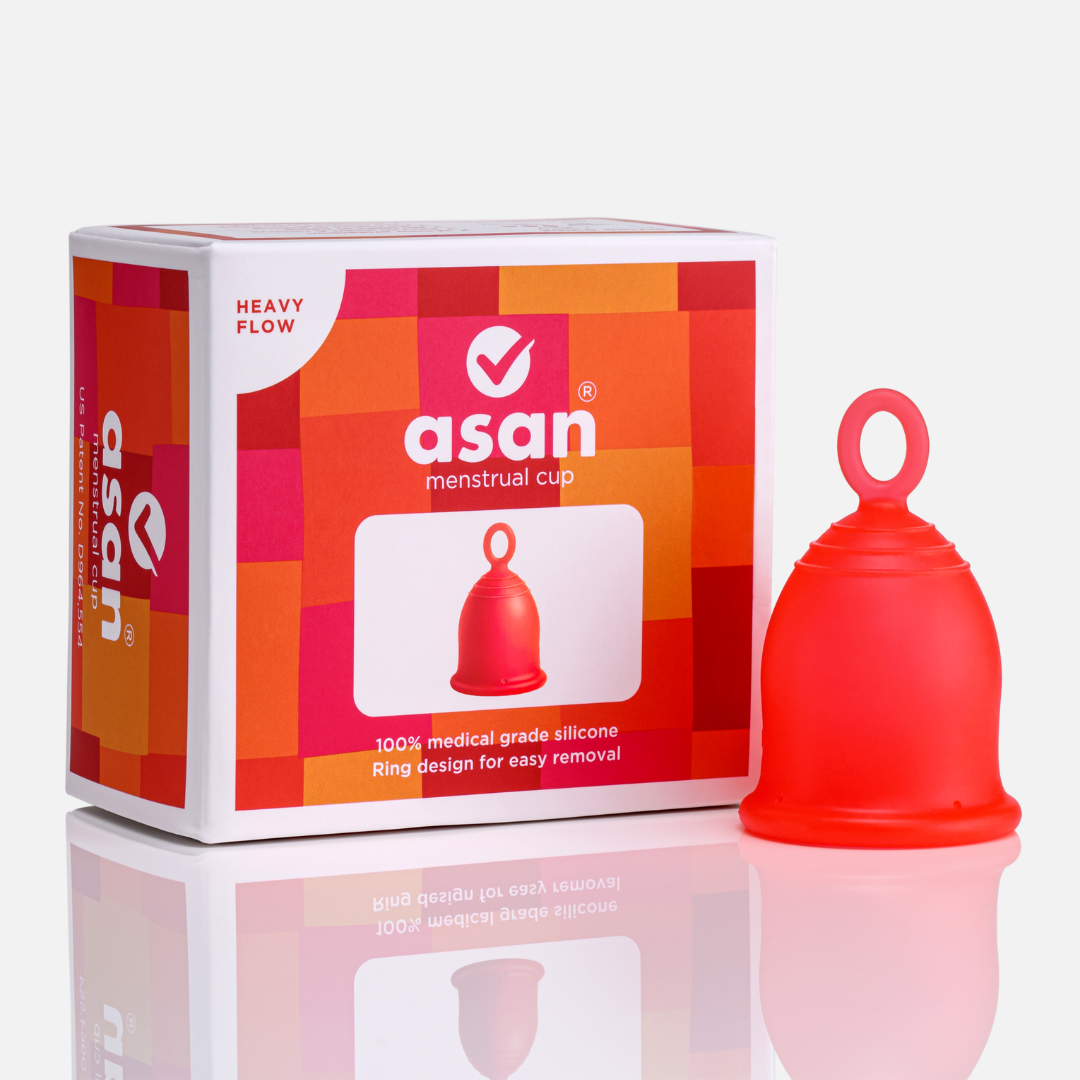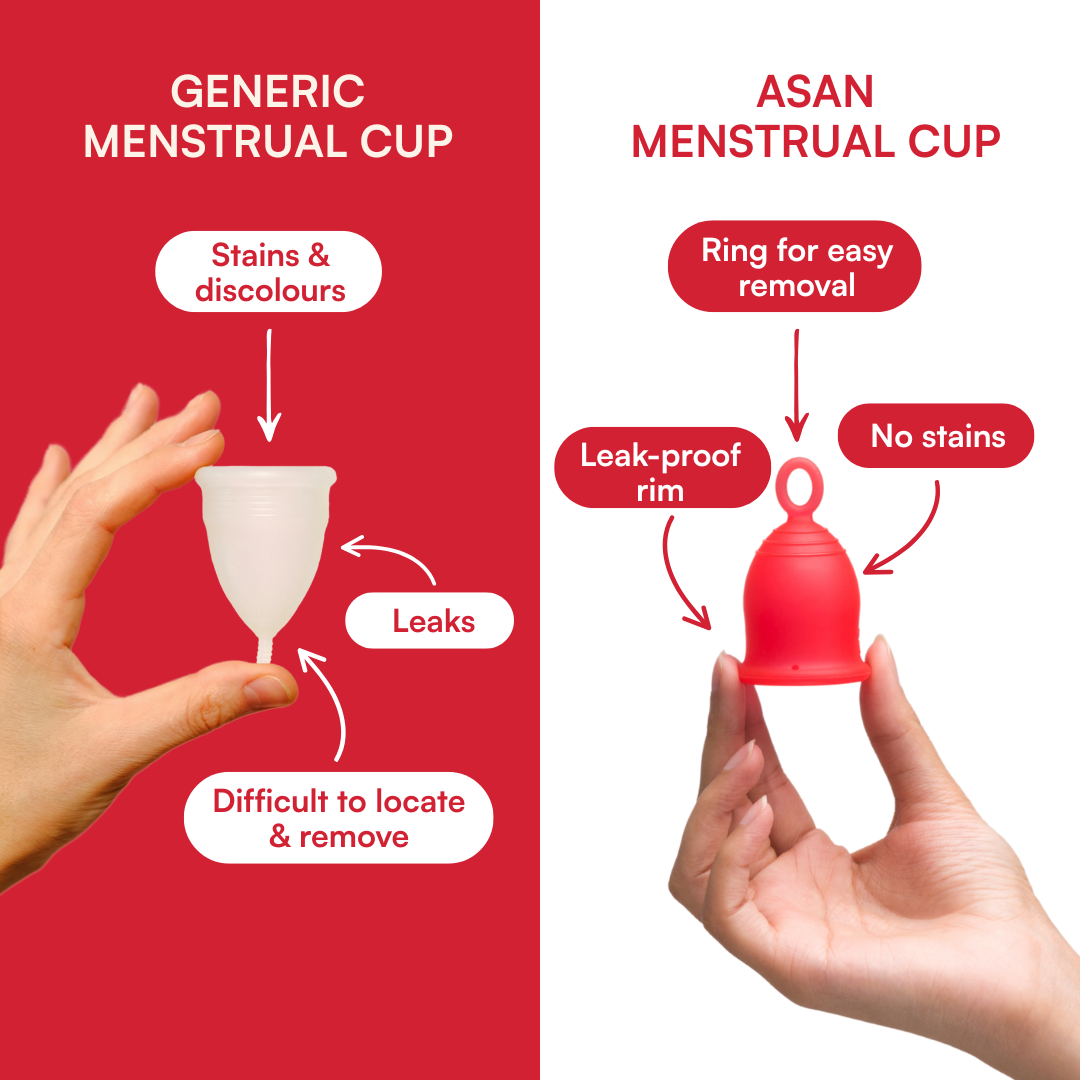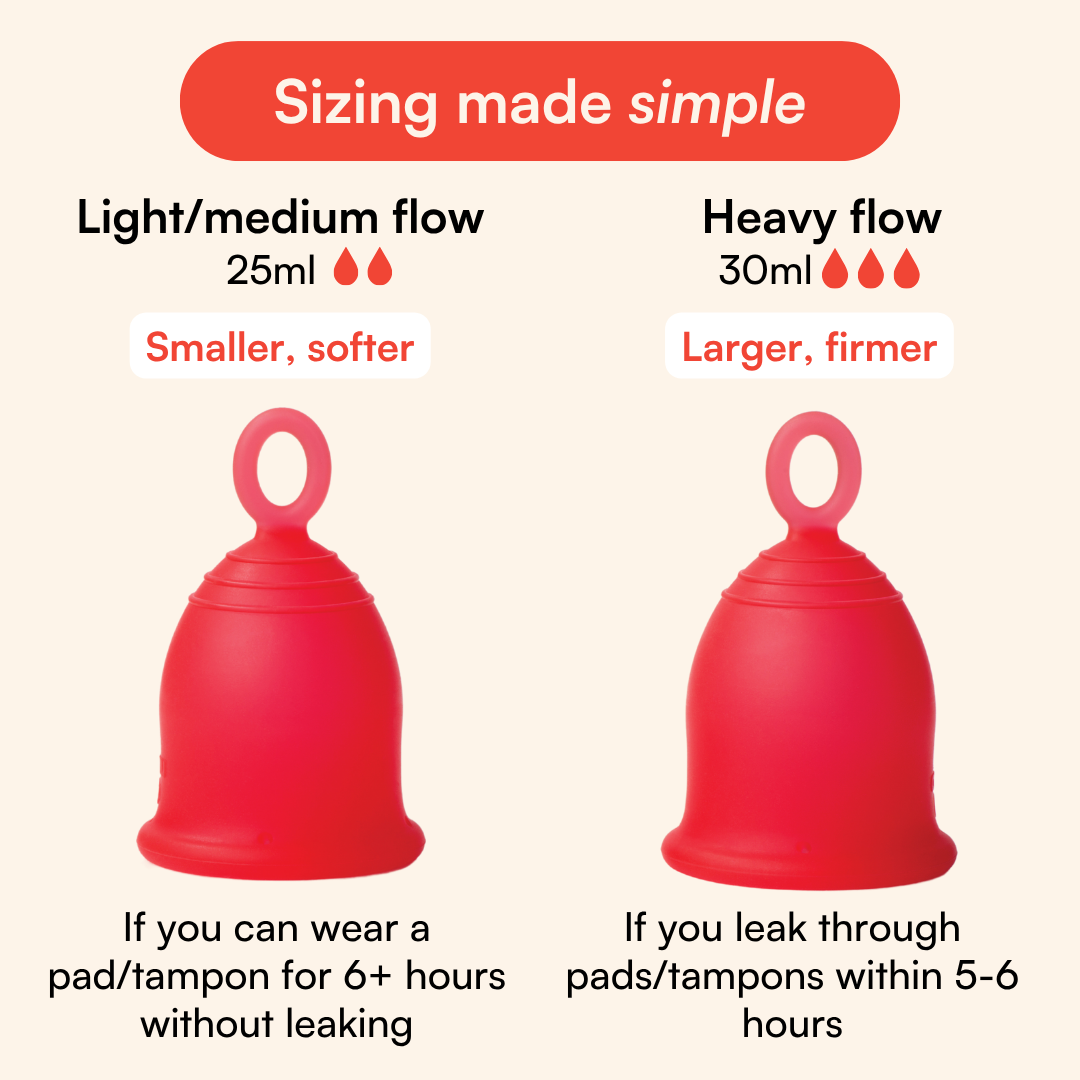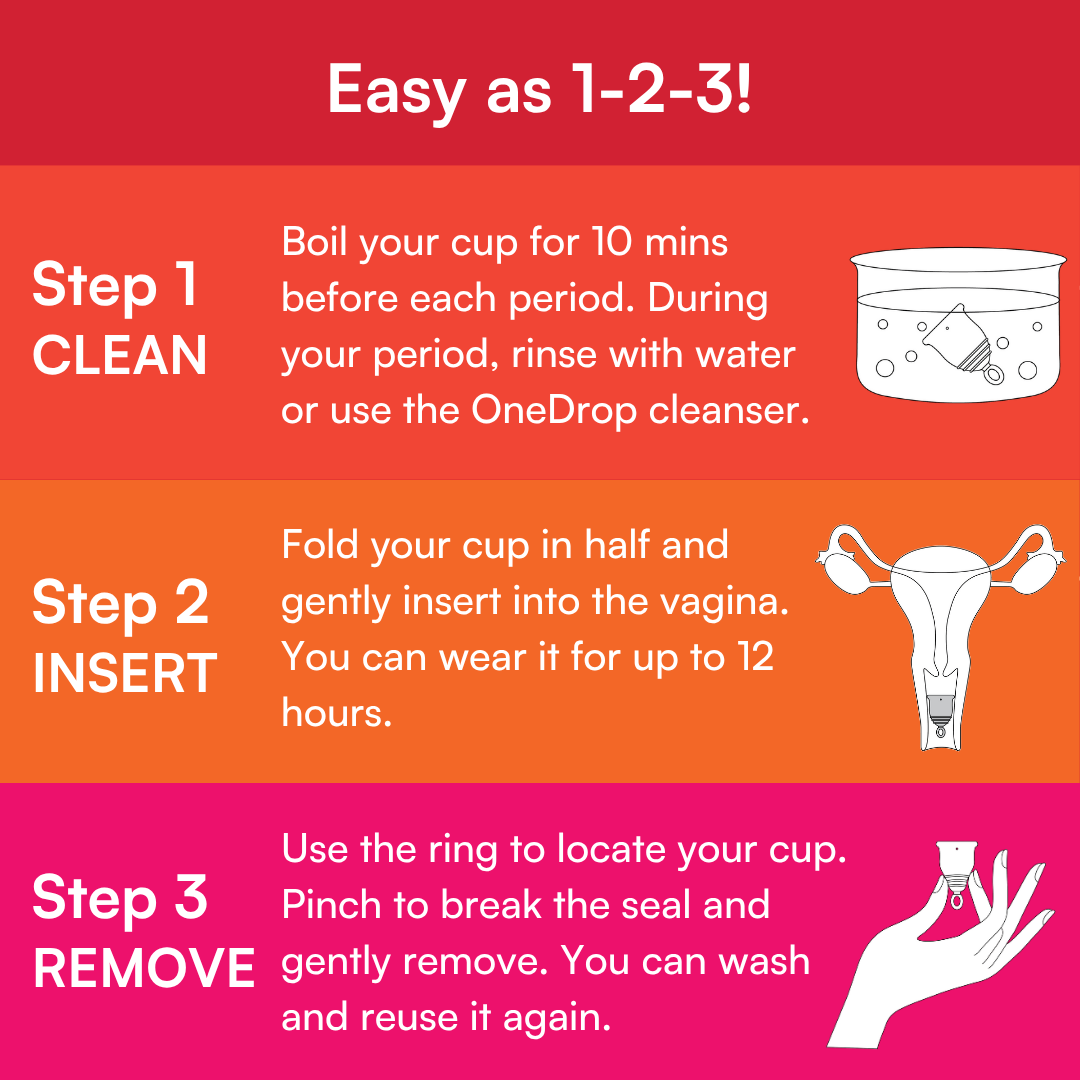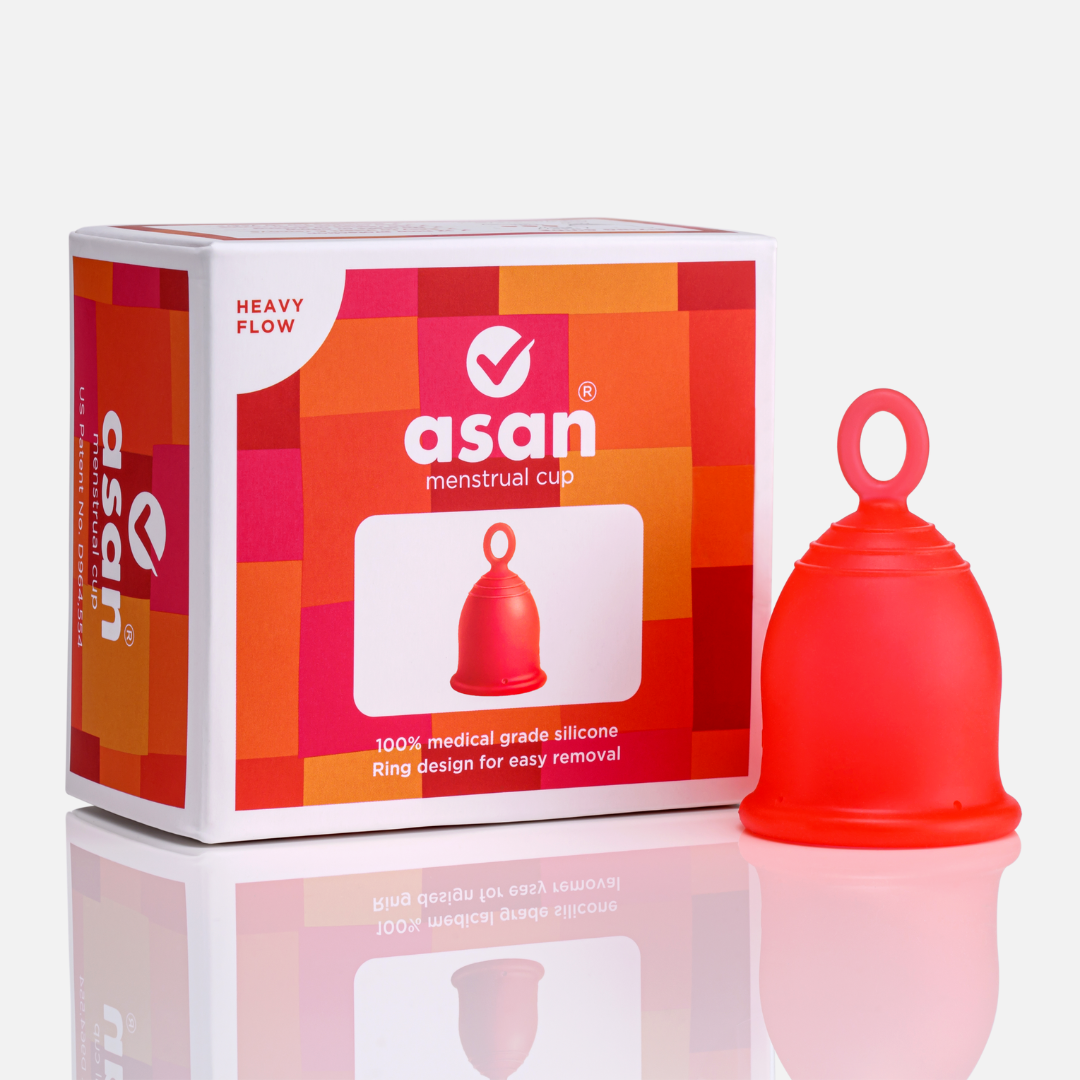
Wondering if the blood clots you notice on your period are normal?
The answer is yes. Blood clotting during period doesn't happen to everyone, but it’s also not uncommon, especially on heavy menstrual flow days. While it can be alarming to suddenly notice them, they are just a natural part of your period.
This blog breaks down the what, why and how of clotted period blood.
What is period blood made of?
You may have noticed that period blood consistency is different from the blood that is released from other parts of your body.
This is because menstrual blood contains both blood and uterine tissue from the inner lining of your uterus. Hence, its colour and consistency is different from regular blood.
Read this blog to learn more about your period flow colour and what it means.
What causes menstrual clots?
Clotting is your body’s natural way of preventing excess blood loss. This happens anywhere in the body, for example if you hurt yourself while playing a sport and bleed, you’ll soon notice brown scabs on that part. That scab is a blood clot!

Similarly, during your period, your body prevents excess blood loss by initiating menstrual clot formation. Menstrual coagulation occurs when blood plasma and platelets bind together to form small clots.
As stated before, period blood includes a mixture of the uterine lining and tissues of blood vessels. Sometimes, these cells are expelled as coagulated menstrual blood, which are basically clots.
What does a normal period blood clot look like?
Normal period blood clots at first just look like thick period blood. But if you observe them further, they are usually small—less than the size of a quarter (size of a pea).

What do large blood clots during period mean?
Even though blood clots during your period can be normal, it is still important to observe them.
Sometimes, abnormal period clots can be identified by their large size. If you do a menstrual clot analysis, you’ll find that normal clots are usually smaller than a quarter and only occur occasionally.
Large blood clots can occur when you have heavy menstrual bleeding. One of the causes of heavy bleeding is iron deficiency anaemia and symptoms may include fatigue, weakness, shortness of breath, paleness and chest pains.
Read this blog to learn about iron deficiency anaemia and heavy periods.

Additionally, some of the other causes of large menstrual cycle clots can include uterine obstructions such as fibroids, endometriosis or in some cases, even tumours.
Regularly observing large clots, a sign of menstrual flow abnormalities can be a sign of an underlying medical condition and it is recommended to see a doctor in this case.
When should you seek medical help?
It is very important to be aware of your menstrual cycle and the patterns, symptoms and peculiarities that come with it. Whenever you feel like something is unusual, you should seek medical help.
Generally, a normal period lasts anywhere between 4-7 days and you can experience cramps, pass small blood clots and lose blood.
However, if your period is outside the normal range for more than 3 cycles, and you’re experiencing symptoms such as heavy blood loss, large clots or extreme pain, you should immediately see your doctor.
Frequently Asked Questions
Jelly-like blood clots during period is it normal?
Sometimes, what occurs to be a blood clot may just be a clump of shed tissues or a mixture of clots and tissues. So yes, jelly-like blood clots during period is normal.
What to do when I see period blood clots in toilet?
Firstly, don’t panic. Blood clot discharge is normal as it is just a way for your body to prevent losing a lot of blood. However, you should observe the clots and if they are large and occur regularly, you should consult your doctor to make sure that it’s not being caused by underlying medical conditions.
Is it normal to pass blood clots during period with pain?
Sometimes you may experience cramps during your period and this may be combined with clot passage during period. If the size of the blood clot is small and the pain is minimal, you have nothing to worry about. However, if you feel like it is unusual or have doubts, it is always better to see a doctor.
Read this blog to learn more about period cramps and how to manage them.


